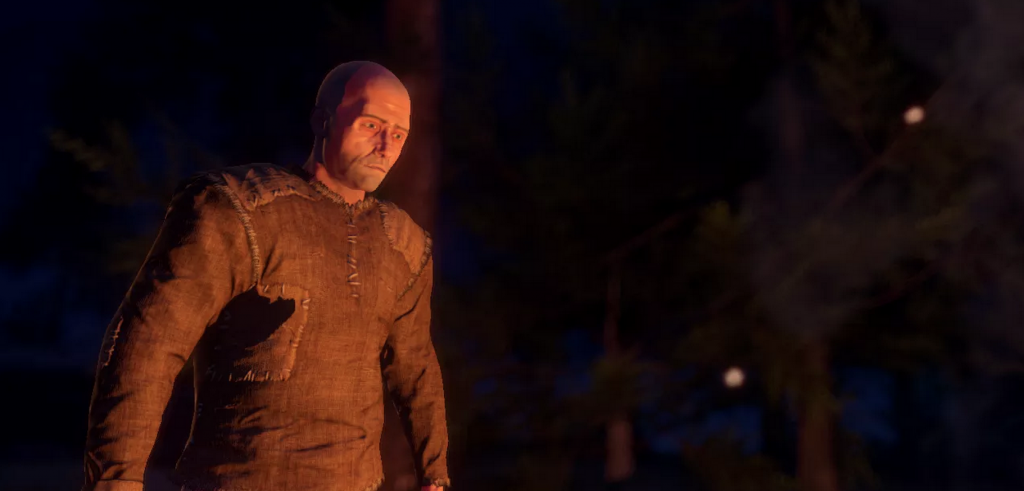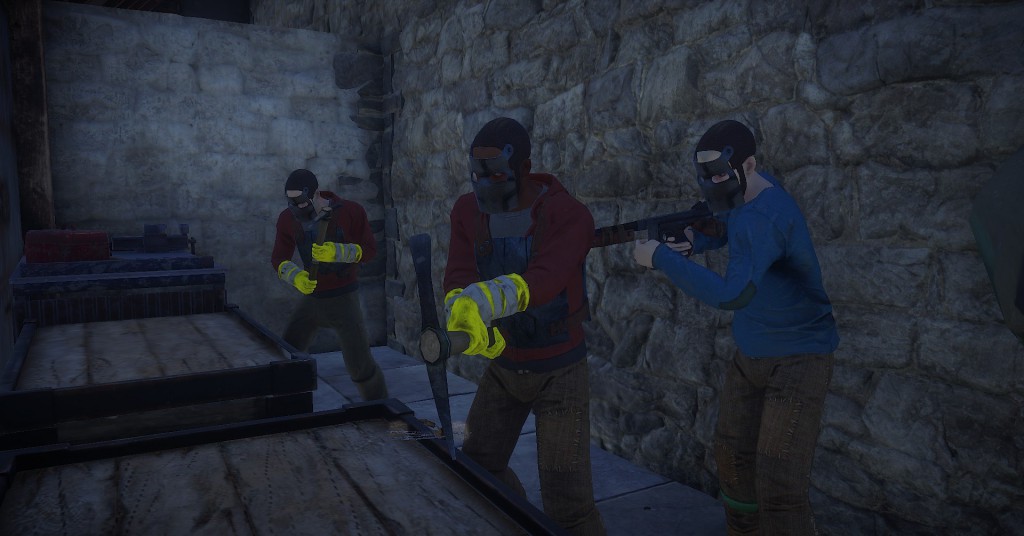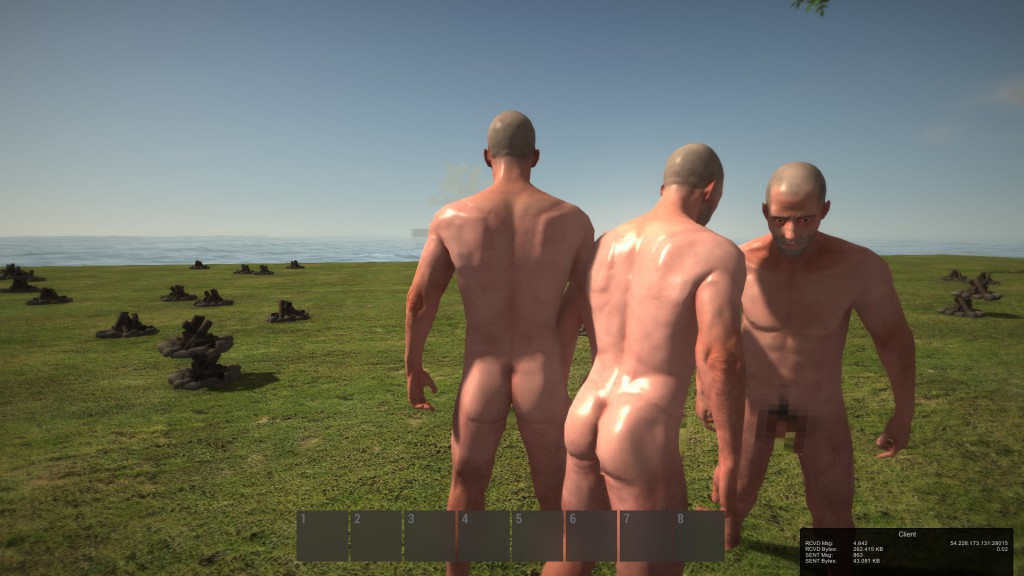Unpacking Rust, Race, and Player Reactions to Change

Post by Adrienne Shaw, Temple University
Having recently published a book on representation in video games, several people have asked me about the “Rust controversy” (and a blog post is easier to manage than multiple email threads). One of the more surprising findings from my book and prior audience studies projects is just how little some people (take note internet: some people) say they care about representation in games. The actual core argument of the book, however, is that media scholars (among others) need to be more attentive to when and how people come to care about representation. Looking at when and how people care about representation helps us better interrogate the limits of the kinds of diversity we have seen in games. And fights over representation, moments when people really care or militantly don’t care about representation, illustrate that really well.
So Rust… The original story broke back in March, when the post-apocalyptic massively multiplayer online (MMO) game released an update that assigned a randomly raced avatar to all players, which could not be changed. Prior to this, all the avatars looked the same: a bald white guy. Responses to this change varied. Some welcomed the injection of aesthetic diversity in the game; others were pissed. Some of this anger was expressed as racist language, some felt the change was “social justice” activism through design, and many just wanted to know how to change what the avatar looked like.
A lot of other smart people have already written about these various player reactions: go read these great pieces by Megan Condis, Kishonna Gray, and Tauriq Moosa now! I want to focus on a slightly different issue than they do however: the role the design of Rust played in helping create those negative reactions.

First, I think it’s a mistake to say that Facepunch Studios experimented here. They took an existing game and changed it pretty dramatically and suddenly. There is a long history of gamers (terminology note) reacting poorly to changes in their favorite franchises (example). Most of the coverage of Rust’s change conflates the effect of making people play as a specific avatar with changing an existing game. MMO players, especially, become really attached to their avatars; there are decades of research on this (start here). Certainly, players of Rust before this update didn’t have choices for what their avatar looked like, but now that there are appearance options I suspect players think they should have more choice (bracketing out for a moment the fair critique that they were willing to accept a default white male option, because that’s what many games typically offer). Self-representation — that is having the chance to represent yourself how you wish, whether the thing on the screen looks like you or not — is a longstanding part of MMOs. That people took the Rust change so hard, and manifested those emotions as racist chat and play behavior is unsurprising (which is not to condone the racism expressed in those comments).
Second, in my book, I talk about the distinction between characters and avatars, and in online spaces especially people are known through their avatars. Rust lead developer and owner of Facepunch Studios, Garry Newman’s comments on the matter demonstrate a misunderstanding of the contextuality of how and when what the avatar/play character embodiment affects when and how people care: “People have a strange need to play someone similar to themselves in games,” he said. “That’s not something I understand. I don’t think I’d have enjoyed Half-Life more if Gordon Freeman didn’t have glasses or a beard.” From my own research, certainly those games (narrative-driven, solo player games) are the ones in which players do not always care much about playing as a character “like them” because there are other ways (narrative mostly) for them to connect to those characters (or not). People who feel emboldened to demand things of games, moreover, do wish that on a broad level there was more diversity within those narrative-driven assigned character games. Players do often care about how they are being represented in contexts in which they are being represented to others through an avatar, like an MMO. And they really care in games that imply they have a choice, which is among the many reasons people care strongly about what relationship options are available in games.

Finally, the way the race was introduced in the game actually helped make it feel arbitrary. Indeed, in the announcement of the change they call race arbitrary: “It’s quite pleasing to see different races working together in game, and makes you realise how arbitrary race is.” Race in the game is an aesthetic addition so people can tell each other apart visually. That isn’t what race is, which is why “color-blindness” has never been an actual anti-racist goal. Robert Yang discusses his own approach to this issue in designing Cobra Club. What would be even more interesting than randomized races is if someone created a game where you are born into a body that affects the way you interact with the world. Now that would be an interesting experiment in how people react to being thrust into an identity that may not be like their own. There is a model for this in fact, in Marsha Kinder’s Runaways, and if anyone has info on what happened to that game please leave a comment.
None of this is to say that Facepunch Studios should be condemned for trying something new. New players will come to the game expecting to be assigned a body. And that’s interesting, and might lead to some unique in-game interactions that change how we understand avatar-player relationships (I sense a dissertation being formed in the distance). The danger, though, is that more risk-averse studios will see the negative response as evidence that players aren’t ready for more diversity in games. There are plenty of games out there for those players who aren’t ready for more diversity; I think the rest of us are ready for something new.


